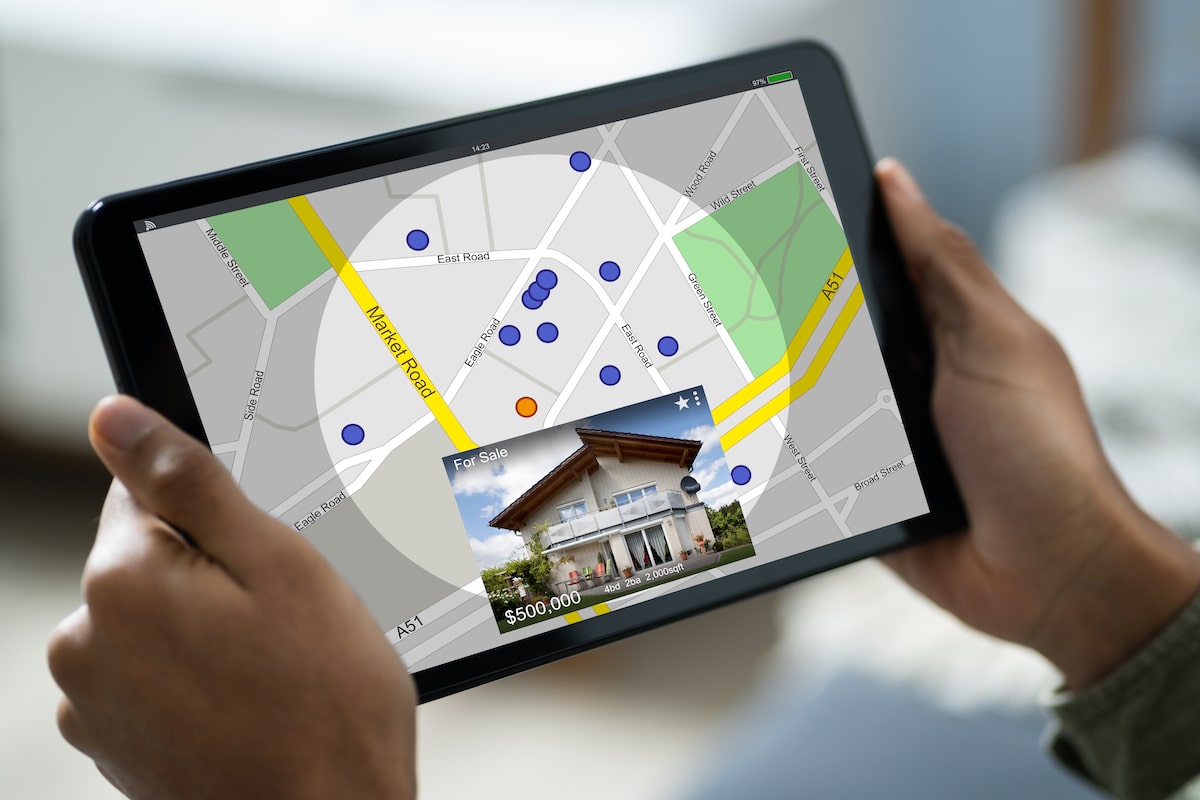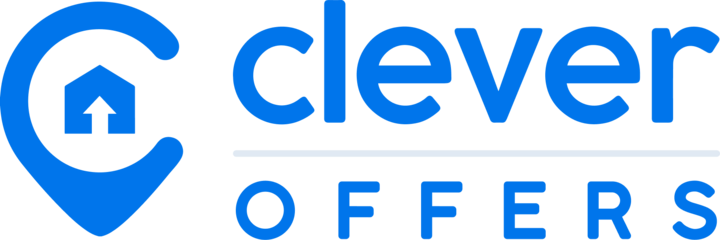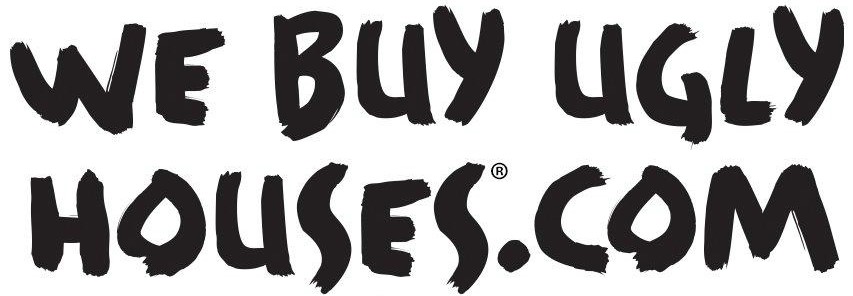
Published
Top Opendoor alternatives | How other companies compare | How Opendoor works | Opendoor vs. realtor | FAQs
If you’re considering selling your home to Opendoor, we recommend comparing offers from several other companies – and having a good idea of your home value going in.
You can can shop alternatives by reaching out directly to top cash home buyers in your area, finding a local realtor with experience selling homes as is, or using a free cash offer network like Clever Offers.
Here are some of the best Opendoor competitors to consider.
Who are Opendoor’s competitors?
| Company | Type | Best for | Customer Rating | Service Fee | |
|---|---|---|---|---|---|
|
Best overall

Clever Offers |
Cash offer network
|
Multiple offers, legitimate cash buyers
|
5/5
|
None
|
Compare Offers |

Offerpad |
iBuyer
|
Flexible selling options with plenty of perks
|
4/5
|
5%
|
Learn More |

Knock |
Home trade-in
|
Minimizing the stress of buying and selling
|
4.8/5
|
2.25% + $1,850 loan fee
|
Learn More |

Orchard |
Home trade-in
|
Tapping equity to buy, then sell
|
4.4/5
|
1.9% + 6% brokerage fee
|
Learn More |

HomeLight Simple Sale |
Cash offer network
|
Comparing cash offers to an agent’s list price
|
4.6/5
|
None
|
Learn More |

We Buy Ugly Houses |
Franchise cash buyer
|
Hard-to-sell homes
|
4.5/5
|
None
|
Learn More |
Customer Rating
Service Fee
Time to Close
Our take
Details
Eligibility
Clever Offers provides a hassle-free way to compare offers from leading investors across the U.S. The 5-star rated company can help you source up to 10 competing cash offers from investors in their network — sparking competition and helping you make a more informed decision. Read our full Clever Offers review.
Pros
- One source for multiple competing offers
- Buyers are screened for experience and proven success at closing deals
- Clever stays with you to ensure a smooth closing and resolve any issues that arise
Cons
- Some offers may be low
- Alternative deal types may have longer closing timelines
- Cash offer options may be limited in some areas
- Clever’s Offers helps you find and compare multiple offers from legitimate cash buyers, ranging from local investors to nationwide iBuyers.
- Buyers are screened for experience, financials, and a track record of recently closed deals.
- In addition to cash offers, you can explore creative financing options like novation and subject-to agreements to help you maximize profit or preserve your credit if you’ve fallen behind on your mortgage.
- You can also request a pricing opinion from a local realtor, so you can compare offers against a realistic sale price.
- Clever offers full support during the selling process, including resolving any concerns or issues that arise with buyers.
- Clever’s service is free to home sellers – buyers pay Clever a small percentage of each deal closed.
- If you opt to list your home instead, you can get exclusive savings through their top-rated agent network.
Locations: Clever Offers is available nationwide.
Purchase criteria: Almost any property is eligible, regardless of condition.
Customer Rating
Service Fee
Time to Close
Our take
Details
Eligibility
Offerpad pays more for homes than traditional house-flippers and also offers great perks, including free local moves and flexible closing windows of 8–90 days. However, customers claim it charges high fees for repairs uncovered during the home inspection. Read our full Offerpad review.
Pros
- You can close in just eight days (15 in FL and GA)
- You can stay in your home for three extra days past your closing date at no charge.
- Sellers get free local moves and a 3-day free extended stay after closing
Cons
- Strict purchase criteria compared to traditional house flippers
- Repair deductions can greatly reduce your final offer
- 1% cancellation fee for backing out after accepting the final offer
- iBuyer making all cash offers on homes in 23 U.S. markets
- Sellers can choose to accept a cash offer or list with an Offerpad agent
- Initial cash offers made within ~24 hours of submitting information online; final offers made after a home inspection
- Flexible closing window of 8–90 days (minimum 15 days in FL and GA)
- Company offers free local moves and 3-day grace period for extra move out time
- Cash offer comes with a 5% service fee and variable repair costs, on top of traditional closing costs
- 1% cancellation fee if seller back out after accepting a final offer
- Listing option comes with standard realtor commission (~6%) and includes free services like deep cleaning, handyman help, and landscape/pool cleanup
- Discounts available for bundled services, such as applying for a loan through Offerpad Mortgage
Locations: Offerpad is available in 24 major markets across AZ, CO, FL, GA, IL, IN, KS, MO, NV, NC, OH, SC, TN, and TX.
Purchase criteria: Offerpad buys single-family homes, condos, townhomes, and homes in gated and age-restricted communities. Must be in good condition, built after 1950, valued at no more than $1 million (depending on market), and on a lot under one acre. Cannot have significant title or structural issues.
Customer Rating
Service Fee
Time to Close
Our take
Details
Eligibility
Knock’s bridge loan offers a convenient way to buy a new house without having to sell your old one first. But you’ll have to pay a minimum of 2.25% in service fees on top of the usual home-selling costs. Read our full Knock review.
Pros
- Put an offer on a new home without it depending on your old one selling
- Use Knock’s bridge loan to cover your down payment, moving expenses, and home prep
- Choose your own listing agent to sell and mortgage lended to buy
Cons
- Service and loan fees add 2.25%, plus $1,850, to your home selling costs
- Backup cash offer will be ~20% less than your home’s market value
- May have up to 6 months of ongoing mortgage costs while your house sells
- Knock’s signature Bridge Loan program lets you tap into your home equity to make an offer on a new house — without it being contingent on your old house selling.
- You can use the loan to cover your down payment, moving costs, and listing expenses like minor repairs and staging.
- The loan also covers your old mortgage for up to 6 months until your old home sells.
- Knock lets you choose your own listing agent (and mortgage lender, if needed for your new home loan).
- If your old house doesn’t sell within six months, you have Knock’s guaranteed cash offer to fall back on.
- The typical backup offer is 80% of your home’s fair market value, as determined by Knock.
- Knock charges 2.25% in service fees, plus $1,850 in loan fees — on top of traditional realtor fees and closing costs.
Locations: Knock is available in AZ, CA, CO, DC, FL, GA, IL, MD, MI, MN, NC, NJ, OH, OR, PA, SC, TN, WA, and WI.
Purchase criteria: Knock works with single-family homes, townhomes, and some condos. Homes must be in good condition, without unpermitted additions, and have a maximum list price of $1.2 million ($2 million in high-priced markets). Certain condos, manufactured homes, mobile homes, multi-family properties, and age-restricted properties may be ineligible.
Customer Rating
Service Fee
Time to Close
Our take
Details
Eligibility
Orchard is a decent option if you want to try selling on the open market, but you like the certainty of having a backup cash offer. Its buy-and-sell program lends you the equity from your current home to make an offer on a new one — meaning you don’t have to wait for your house to sell to free up the cash for a down payment. The company then helps you list your home on the market and gives you a guaranteed cash offer to fall back on. The downside? Orchard fees start at ~8% of the sale price. Read our full Orchard review.
Pros
- List on the open market, have a cash offer to fall back on
- Make a more secure, competitive offer when buying
- Avoid paying overlapping mortgages out of pocket
Cons
- Service fees are ~8% of your home sale price
- Orchard’s backup offer is less than market value
- Orchard’s home trade-in service fronts you the equity from your current home to help you buy a new house before you sell
- Sellers enter their information online to get an initial home value estimate and qualify for Orchard’s program
- Orchard’s provides an “equity advance,” which you then use to make a non-contingent offer on a new home and cover ongoing mortgage payments while your old house sells
- After moving into your new home, Orchard will prepare and list your old home
- If it doesn’t sell after 120 days, you can accept Orchard’s guaranteed offer as a backup
- Customer reviews indicate that cash offers are worth ~85% of the home’s estimated market value
- Sellers can use Orchard’s concierge service to make improvements to their home before listing
- Orchard charges a 1.9% program fee for the equity advance, plus a 6% brokerage fee for its listing service
- You’ll work with an Orchard agent to list your home
Locations: Orchard purchases homes in the following metros: Atlanta, Austin, Dallas–Fort Worth, Denver, Houston, San Antonio
Purchase criteria: Most single-family homes built after 1920, worth between $200,000 and $1 million ($1.5 million in Austin and Denver). Condos worth between $200,000 and $750,000 are also eligible.
Customer Rating
Service Fee
Time to Close
Our take
Details
Eligibility
If you’re not sure where to start, HomeLight Simple Sale helps you explore two options: Getting cash offers or listing with an agent in their network. However, reviews indicate that offers are scarce in some areas and most sellers end up being matched with an agent. Read our full HomeLight Simple Sale Review.
Pros
- Compare investors’ offers to the sale price you’d get with an agent
- Investors are vetted by HomeLight team before joining their network
- No extra fees for using HomeLight’s service to find offers
Cons
- Not all sellers are successfully matched with investors
- Final offers may be lower than HomeLight’s initial online estimate
- You may get calls from HomeLight agents trying to earn your business
- Homelight’s cash offer service connects you to reputable investors who can make cash offers on your home
- Submit your property information online and talk to a Home Consultant, who will then put you in touch with investors
- You’ll also be connected to one or more HomeLight partner agents to explore listing your house as is
- Get cash offers within a week and close in as little as 10–30 days after accepting
- There are no extra fees or closing costs associated with a cash offer
- If you opt to list with a realtor, you’ll pay the standard listing agent commission of 2.5–3%
- HomeLight’s agent matching platform has an above-average customer rating, but few reviews mention their cash offer service
- Available reviews indicate that not all sellers can get cash offers in their area
Locations: HomeLight Simple Sale is available nationwide. However, offers may be limited in some areas.
Purchase criteria: Any property is eligible. If no investors are available to make offers, you have the option of listing as is with a HomeLight partner agent.
Customer Rating
Service Fee
Time to Close
Our take
Details
Eligibility
We Buy Ugly Houses (also known as HomeVestors) is a good option for hard-to-sell homes. The company makes near-instant offers and it buys homes as-is, so you can walk away with zero hassle. However, with more than 1,000 offices nationwide, service quality can vary by location. Read our full We Buy Ugly Houses / HomeVestors review.
Pros
- You can typically get an offer in 24–48 hours
- Closing can happen in as little as three weeks
- Company is known for purchasing homes in any condition
Cons
- Pays significantly less than what you could net on the open market
- Service quality varies between franchises
- We Buy Ugly Houses is one of the nation’s largest house flipping companies, with more than 1,000 franchise offices across the U.S.
- Each office operates independently, and reviews indicate that service quality varies by location
- A company rep will typically visit your property within a few days of contacting their office and make an offer within 24 hours of their inspection
- You can close in about three weeks, or take longer if needed
- Offers vary by property, but as a general rule, investors pay ~70% of a home’s after-repair value (AVR), minus expenses
- The company pays closing costs, and there are no fees or realtor commissions
Locations: We Buy Ugly Houses / HomeVestors has over 1,000 independently operated franchises spanning 46 states and Washington, DC.
Purchase criteria: Almost any property is eligible, including short sales, tenant-occupied rentals, distressed homes, and some commercial properties. Will not purchase mobile homes.
How does Opendoor work?
Customer Rating
Service Fee
Time to Close
Our take
Details
Eligibility
Opendoor pays much closer to market value than traditional house flippers while still offering the benefit of fast closings and no repairs. For that convenience, you’ll need to contend with stricter purchase criteria, repair deductions, and a service fee of 5%. Read our full Opendoor review.
Pros
- Pays closer to market value than traditional home flippers
- No need to make repairs or prep your home for sale
- Choose your closing date and change it if needed
Cons
- Final offers can be significantly lower than the initial estimates
- Stricter purchase criteria than traditional home flippers
- Repair deductions and 5% service fee can eat into profits
- iBuyer providing cash offers on homes in 50+ markets across the U.S.
- Initial offers are made within 48 hours of submitting property information online
- Final offer is provided after a brief inspection, which can be done in-person or by phone/video
- Sellers have the option to accept cash offer or list with an Opendoor partner agent, using the cash offer as a backup
- Cash offer comes with a 5% service fee, plus variable repair costs, on top of traditional closing costs
- You can choose a closing date 14–60 days after receiving your final offer
- Listing option comes with a traditional realtor commission of ~6%
- Backup cash offer is good for 60 days
- Option to rent back your home for a daily fee if extra move out time is needed
Locations: Opendoor is currently available in 50+ major markets in AL, AZ, CA, CO, FL, GA, ID, IN, KS, MA, MI, MN, MO, NV, NJ, NM, NY, NC, OH, OK, OR, SC, TN, TX, UT, VA, WA, and Washington, DC.
Offer criteria: Only single-family homes and townhomes built after 1930, valued between $100,000 and $600,000 (up to $1.4 in some markets), and on a maximum lot of 1–2 acres (depending on market). Must be owner-occupied without any serious issues.
Opendoor is the country’s largest iBuyer. iBuyers make near-instant cash offers on homes and can help you avoid the hassles of a traditional home sale — including showings, open houses, and lengthy negotiations.
In exchange for a convenient cash sale, Opendoor charges a 5% service fee, plus typical closing costs and deductions for repairs. The company may also offer significantly less than your home’s fair market value.
» READ: Everything you need to know about Opendoor
What to consider before selling to a company like Opendoor
- iBuyers have limited service areas and strict purchase criteria, so they’re not an option for most sellers. They’re only available in about 50 markets nationwide, and they typically look for newer homes in appreciating areas that don’t need a lot of work to resell.
- Offers are unique to your home. Cash buyers like Opendoor make offers based on a variety of factors, including current market conditions and the amount of work needed to make your home move-in ready.
- Listing with a real estate agent will likely get you a higher selling price than selling to an iBuyer. You can work with a real estate brokerage that offers discounted commission rates to save thousands on home-selling costs.
- Trade-in services like Knock and Orchard offer an alternative for sellers who want to avoid the hassles of a traditional home sale but don’t want to sacrifice their equity. However, the selling costs for these services tend to be higher than costs for iBuyers or traditional listings.
- If you need to sell fast but don’t meet an iBuyer’s purchase criteria, consider selling to a real estate investor. These investors include local house flippers and national “we buy houses for cash” companies. Investors can close in 1–2 weeks, but you’ll usually make a lot less profit.
- To get the best price, seek competing offers from multiple buyers. You can do this independently, with the help of a real estate agent, or through a free service like Clever Offers.
Companies like Opendoor: Key similarities and differences
Opendoor vs. Offerpad
🔑 Key similarities
- Both companies charge a service fee of 5%.
- You can pick your closing date. You’ll have the freedom to move when you want to.
- No showings are required. Instead, both companies will schedule an inspection and take care of repairs for you. (They deduct the cost of repairs from the selling price.)
🔑 Key differences
- Offerpad has a more flexible closing timeline. In most locations, Offerpad can close in 8–90 days. Opendoor offers a range of 14–60 days.
- Offerpad may have higher repair costs. Home sellers claim that Offerpad has a more thorough inspection process, often resulting in higher repair costs.
- Opendoor is available in more markets. Opendoor operates in 50+ cities across the US, while Offerpad operates in just 24 markets.
Offerpad is Opendoor’s main competitor in the iBuyer space. Like Opendoor, Offerpad purchases mostly move-in ready homes in appreciating areas to resell them for a profit. Both companies charge a 5% service fee in exchange for a quick, hassle-free home sale.
Offerpad has a few advantages over Opendoor, including a more flexible closing timeline. You can close in as little as 8 days or up to 90 days if you need more time to find a house. Offerpad also offers perks like free local moves and a three-day grace period after closing in case you need more time to move out.
However, some customers we talked to note that Offerpad charges more for repairs, resulting in final offers that are much lower than initial offers. Offerpad also charges a 1% cancellation fee, while Opendoor doesn’t charge a fee to cancel. Additionally, Offerpad is available in only half as many markets as Opendoor.
» MORE: Offerpad vs. Opendoor: Which iBuyer Should You Use?
Opendoor vs. home trade-in services
🔑 Key similarities
- Your home sale is guaranteed. Companies like Knock and Orchard provide a backup cash offer in case your home doesn’t sell on the open market. Opendoor buys your house directly.
- Home showings won’t disrupt your schedule. With Orchard and Knock, you can move into your new home while showings happen at your old home. With Opendoor, you don’t need showings because the company is your buyer.
- You have flexibility on closing dates. Both types of companies allow you to choose when you move.
🔑 Key differences
- Opendoor tells you a sale price upfront. Knock and Orchard can estimate what your home will sell for on the open market, but there’s no guarantee.
- Opendoor has lower fees. With Knock, you pay a 2% convenience fee as well as real estate commission. Opendoor’s service fee is 5%, but you don’t have to pay realtor commissions.
- Home trade-in services can usually get you more for your house. both Knock and Orchard help you maximize your home’s selling potential listing it after you secure a new house.
- Opendoor deducts repair costs from your offer, while companies like Knock and Orchard advance you a portion of your home equity to make repairs before you list.
Rather than buying your home outright, home trade-in services let you borrow against your existing home equity to purchase a new home before you sell. If your home doesn’t sell, the company gives you a cash offer as a backup.
When you contact a home trade-in service like Orchard or Knock (two of the better-known options in the business), the company will estimate your home value, determine how much equity you can tap into, and furnish a short-term, interest-free loan to purchase your next house.
Once you move out, you’ll work with a realtor to list and sell your home. You can use a portion of your equity advance to pay for moving expenses, make repairs before listing, and cover ongoing mortgage payments during the period between closing on your new home and selling your old one.
However, you’ll have to pay ~2% of your home sale price in service and loan fees, on top of traditional realtor commissions and closing costs.
Opendoor vs. ‘we buy houses’ companies (or ‘house flippers’)
🔑 Key similarities
- Both types of companies make a quick offer. Like Opendoor, house flippers can usually make a cash offer within 24-48 hours — it often happens on the spot after they inspect your home.
- Both Opendoor and ‘we buy houses’ companies offer fast closings. Because iBuyers house flippers purchase homes with cash, you can usually close in as little as 1–2 weeks.
- Neither requires you to host make repairs. The trade-off is that both companies offer below-market value so they can resell your home for a profit.
🔑 Key differences
- We buy houses companies will purchase homes in any condition. Opendoor has strict criteria and excludes most distressed or worn-down homes.
- Opendoor makes offers closer to market value. ‘We buy houses’ companies typically offers anywhere from 60–85% of your home’s after-repair value.
- We buy houses companies are available just about anywheree, while Opendoor operated in about 50 markets.
‘We buy houses’ companies range from national franchises like We Buy Ugly Houses to local mom-and-pops that purchase a home or two per year.
They are far more willing to purchase homes in less-than-ideal condition. They’re also available in more markets than iBuyers like Opendoor, which generally stick to major cities.
The trade-off is that these fix-and-flip investors typically pay as little as 70% of a home’s fair market value. They make a profit by buying homes at a bargain price, fixing them up, and selling or renting them for a higher price. However, some investors may offer more depending on their investment model.
» MORE: Are ‘we buy houses’ companies a ripoff?
Opendoor vs. cash offer networks
🔑 Key similarities
- Either option can get you a cash offer quickly without you having to list on the open market.
- You can request an offer for free — with no obligation to move forward.
- Both options aim to make the home-selling process hassle-free. You won’t have to make improvements to appeal to buyers or vacate your house for showings and inspections.
🔑 Key differences
- Cash offer networks solicit buyers for and connect you with the best options. That way, you save time and awkward conversations seeking prospective buyers. Opendoor gives you only one offer to choose from.
- You’ll likely get much lower offers. These companies works with investors, who tend to look for fixer-uppers they can flip for a profit — although Clever Offers also have iBuyers in its network.
- Neither Clever nor HomeLight charge sellers fees for their service, while Opendoor charges a 5% service fee.
- You can seek offers from cash buyers nationwide, while Opendoor only operates in certain markets.
Often, the best way to get offers from investors is through a cash offer service like Clever Offers or HomeLight Simple Sale.
Both companies have large investor networks spread across the country and screen investors before accepting them as partners — requiring them to show current proof of funds and a paper trail of successful deals.
With either option, you can compare multiple cash offers with the peace of mind that you’re dealing with legitimate buyers. However, Clever’s network includes iBuyers like Offerpad and Opendoor, as well as investors offering alternative deal types that may net you a higher payout.
Since both companies also offer agent matching service that connect buyers and sellers with top local real estate agents, they can also help you explore the price difference you’d get with listing a realtor vs. selling to a company that buys houses. However, Clever pre-negotiates realtor fees with their partner agents, so if you opt to list your house, you’ll save significantly on the standard real estate commission.
» See what leading cash buyers can offer for your home
iBuyers no longer in business
Opendoor vs. a realtor
Real estate agents are still an option even if you don’t have the time, money, or desire to make repairs before listing. Many realtors are adept at helping you minimize the losses from selling a home as is.
“At my brokerage, we offer a program called InnoEquity,” says Suzanne Seini of Innovate Realty in Irvine, California. “The program enables homeowners to tap into their equity with no out-of-pocket costs and have pre-listing renovations done to their homes. The homeowner would then pay for the work when they close escrow.”
A realtor may even advise you to list on the MLS while using a cash offer as a backup.
“One of the first things I do when I am helping a seller is shop around to iBuyers and investors to see if anyone is willing to pay as much as I expect it will sell for on the open market,” says Phoenix-based realtor Adam Evans. “They usually don’t, but sometimes they will and we can speed things up. Also, it’s good to know about them for a baseline value and backups.”
Before signing with a realtor, make sure you understand who pays their commission if you sell to a company like Opendoor. Since iBuyers charge you a service fee of 5%, you may not want to offer your agent an additional commission. A good agent should be open to negotiating their fees.
» MORE: The best discount real estate brokers
FAQ
Are there other companies like Opendoor?
Yes, there are other companies like Opendoor. Offerpad offers similar iBuying services, while Orchard and Knock offer home trade-in programs (but not iBuying). Services like Clever Offers and HomeLight Simple Sale offer a free way to compare offers from multiple cash buyers. Check out the best alternatives to Opendoor.
What is the best Opendoor alternative?
Offerpad is the best-known iBuyer after Opendoor, but it isn't your only alternative for getting a fast cash offer. Services like Clever Offers provide a way to compare cash offers from competing buyers, including individual investors and iBuyers like Opendoor and Offerpad. Here are our recommended alternatives to selling to Opendoor.
Who is better, Opendoor or Offerpad?
Offerpad isn't as widely available as Opendoor. But Offerpad offers free local moves and has a slightly more flexible closing timeline (8–90 days vs. Opendoor's 14–60 days). Since both companies will give you a free quote, we recommend comparing quotes before choosing either company. Read our full comparison of Offerpad vs. Opendoor.
Related reading
What Is an iBuyer? iBuyers offer cash payment for homes on a lightning-fast timeline. The trade-off is that instant offers may be less than what you’d get on the open market.
How to Sell Your House Fast: On average, it takes a little shorter than a month for a home to go under contract once it’s listed for sale. However, that’s not the end of the process. It could take another month for the sale to close. Read on for tips to streamline this process and sell fast.
We Buy Houses for Cash Companies: In this guide to “we buy houses for cash” companies, we detail the differences between types of cash buyers, the process cash buyers use to purchase your home, and the pros and cons of selling to a cash buyer.



Leave a Reply